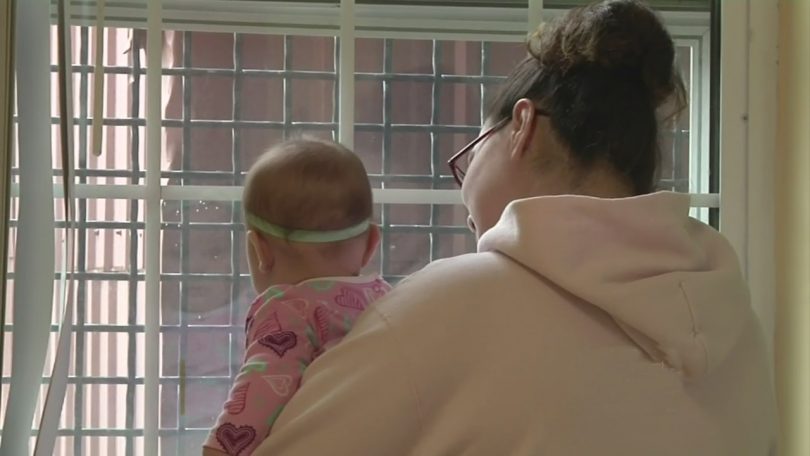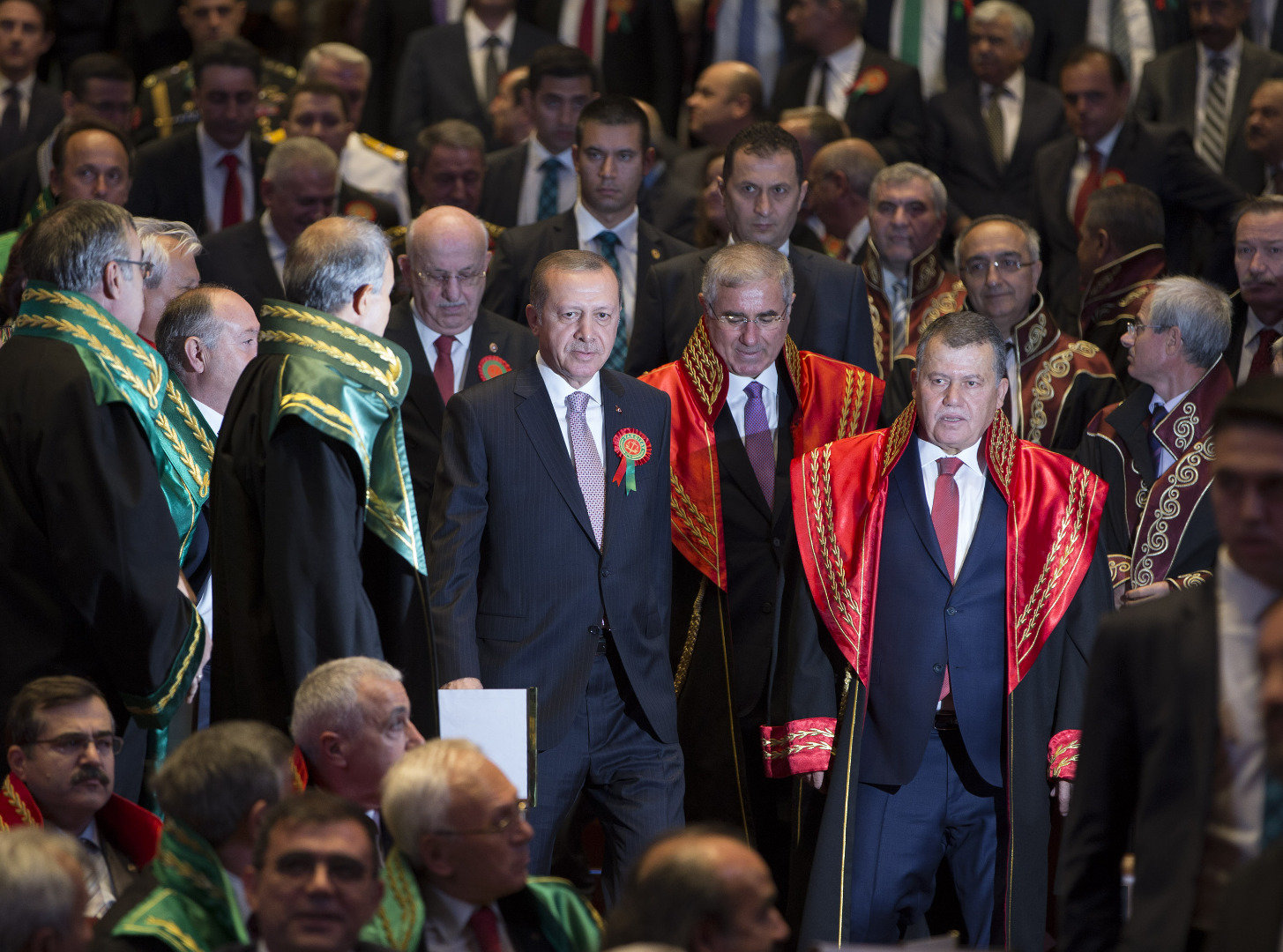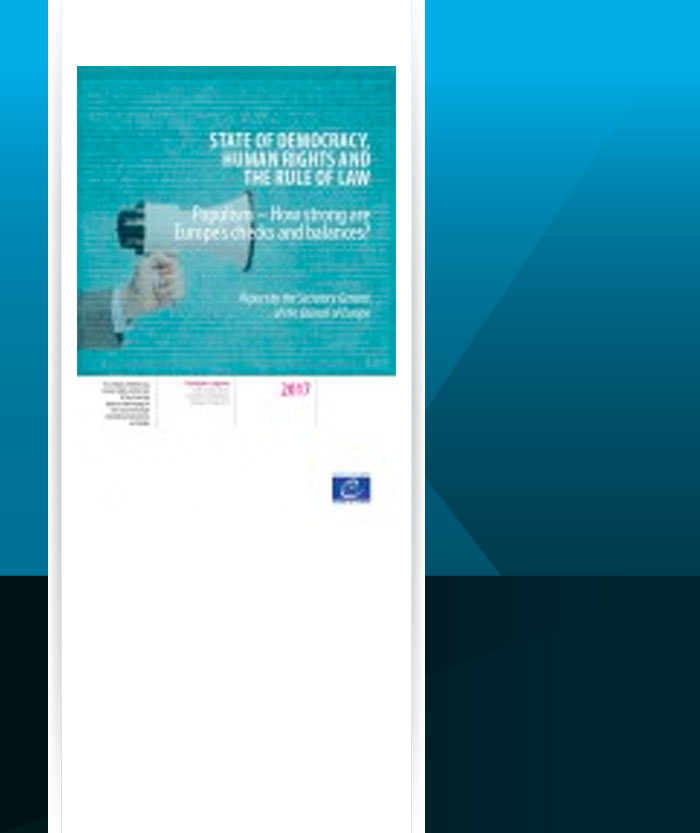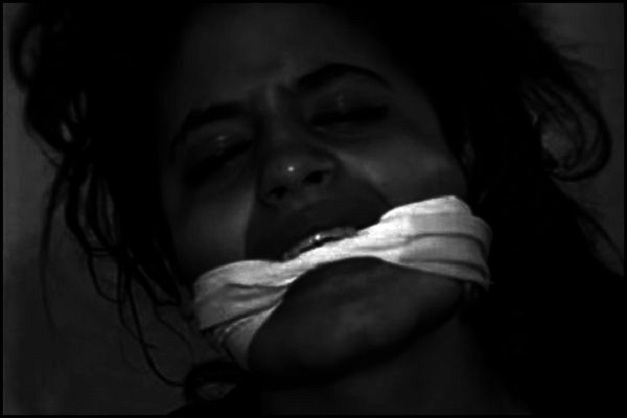By BETUL SAGKOL
Following the coup attempt on 15 July 2016, the Republic of Turkey has entered a very dark era, during which the severist law violations in its history have been witnessed one after the other. With the state of emergency declared on July 20 only a very short while after the coup attempt, the rule of law has been put aside.
In every society where justice is not served, it is always the weakest ones who suffer the greatest damage. The Turkish judiciary which became fully subservient to the ruling power after the coup attempt has since issued many unlawful verdicts. Tens of thousands of public officials whose names appeared on the lists which had been previously prepared by the National Intelligence Agency and the Police have been both dismissed from their jobs and detained on the ground that they had links with the coup. With the tragedy of their parents put behind the bars also began the tragedy of some of the children. It was already a tragedy for having mother or father or, both, detained, but this has happened to thousands of children all at the same time which exacerbated the suffering. Today, 17 thousand women are kept in Turkey’s prisons. Some of the children have also followed their mother into prison as they are dependent on their mother’s care and been ripped apart from their peaceful homes and love and care of their family members.
At so many cases, policemen are seen to be waiting at hospitals to arrest mothers who are at maternity units to deliver their babies. They were under life-threatening risks. As their husbands were detained in prison, they could not be with them during the delivery. While at labour, these women both feared for the health of their babies and suffered the threat of going into prison with their babies. They are ussulaly arrested not more than one day after their delivery. They spend their recuperation period under arrest instead of in warm bed.
Although the judges knew that these women had just given birth, they still issued detention orders against them.[1] Many babies with poor health who are still craving for their mothers’ scent and milk have been sent into prisons, after being subjected to harsh conditions at the police custody.
A news report, broadcast by BBC, has shown the severity of the case. According to this news report, mothers who were put behind bars together with their babies suffered greater difficulties in the wards which had very poor living conditions. The prison administration did not supply any of the items they needed for their babies such as cot, baby feeding chair, baby walker, extra baby food, nappies, wet-wipes, etc. After the inspectors from the European Commission reported that the babies’ needs were not satisfied, they requested from the prison administration to ameliorate the conditions of the prison. However, instead of improving the conditions of the prison where the mother and her baby were kept, they were transferred to another prison. A mother whose milk was not sufficient for her baby, because they did not allow her to have supplementary food for her baby, she had to feed her 4 month-old baby with the oily aubergine stew she was given.
Babies have been compelled to stay in wards where their mothers have been kept together with 20 or more other detainees. The prison administrations refused to give any toy to children younger than three, nor did they allow any toy to be sold in the canteen either. Moreover, they denied the right for these babies to complete their crucial, early childhood development in a health manner and did not let them play in playgrounds and with suitable toys. These children, as if they themselves are the detainees, are able to see their siblings and fathers only once a month for a very short time. These children who are growing up behind the bars have to wait for hot-water days to be washed. Because they are allowed to have only limited number of outfits, they cannot change their clothes as soon as they are stained. When mothers are taken to courtrooms, they are also taken to the shuttle as mother cannot leave their babies with the other detainees. The baby whose mother is taken into a courtroom also goes into the courtroom with the accompaniment of the gendarmerie.[2] Although it is allowed to prepare a birthday cake in prison wards, the administration did not allow the detainees to make a cake for the birthday of a baby called Miraz, who entered his first year of age in prison where he is staying together with his mother.[3]
The mothers who are staying in prison with their children are able to communicate the appalling prison conditions for the little children by either telling directly to their visitors or in their letters, where they are allowed to send posts. Since sending/receiving letters is restricted in many prisons, many women have been able to describe the poor conditions their children had suffered in prisons to the journalists, after they have been released.
A mother kept in Gebze Closed Prison with her 2-year old daughter told that the most difficult thing for her was the lack of food for her baby. She said that there was no alternative food to feed her baby other than the meals served by the prison and she could not even cook soup for her baby.
Some women said that they have to carry their babies in their arms all the time. The following are some of the complaints expressed by mothers: The treatments done under the measure of security affect the children negatively. All roll-calls and body searches are conducted before the eyes of the children and this causes trauma for both the women and their children. As a mother with a baby is given only one bread roll per day with no extra food provided, she has to share it with her child and all other courses are allocated per detainee without counting the children. Where the children go in the prison including the playroom, they have to pass through X-ray machine. They are often forced to pass the machine more than once because it beeps for even a slight thing and when it beeps, the children are forced to take their hair clips or shoes off and passed through the machine barefooted. The children do not have their own beds. They have to use the same narrow bed that their mother sleep on and share a bunkbed with people they are not familiar with at all.[4]
Gamze İlgezdi, the Member of Parliament from the main oopposition party CHP, issued a report, based on the information she obtained as a result of her research about the children staying in prison with their mothers. The report shows that the children are not allowed to be taken to the infirmary on a day other than the infirmary visit day allocated for the ward they are staying in, even if they become very ill and the doctor prescriptions do not arrive before two days in the earliest.
If a child is referred to a hospital for a serious illness, they are taken there without the company of their mother by complete strangers, which causes trauma for them. Small boys, who are away from other boys at their age and have to spend time always with the women in the ward, they sometimes suffer gender identity problems.[5]
Meanwhile, there are still many more women waiting to be taken into custody with their newly born babies, if they sentences are approved with a final judicial decision. This means that “the future of these children is darkened”[6] as expressed by Öztürk Türkdoğan, the Head of the Human Rights Association (IHD).
Besime Konca, Siirt MP elected from HDP, posed a parliamentary question to the Minister of Justice Bekir Bozdağ asking about the high number of human rights violations committed in prisons. In the question, Ms. Konca shared the story of a mother and her baby: “10-month old baby Diyar Kömürcü, who is staying in prison together with her mother, is in need of her mother’s milk. Baby Diyar was kept in police custody for 10 days in the insanitary conditions of the basement of a police station. The Mardin Y Type Prison did not have the health facilities to treat the first degree burns on Baby Diyar’s body which she had at the time when her mother had been taken to custody.”[7]
Rezan Zuğurli, the former elected Mayoress of Lice, who is dismissed from her position and a government trustee assigned, is detained. Zuğurli’s husband has learnt that his wife is transferred to Van (a 238 km distant city) together with her 1-year old baby. He said that, although the baby had problem with her lungs, had difficulty of breathing especially in closed areas, they put her in the same shuttle as his detained wife, and now he can see his wife and child only once a month.[8]
German citizen Meşale Tolu, the journalist and interpreter of foreign news service of ETHA (Etkin News Agency) is detained. She is put in prison together with her 3-year old baby, since her husband has also been detained. At the first court-hearing of the public case filed against her, a decree for the continuation of her detention is issued. Tolu expressed at the court that, because her husband is also detained, her child is staying in prison with her and this actually means that her whole family is punished. But this did not persuade the court not to issue the verdict for continuation of her detention.[9]
The Ministry of Justice answered the question of Gamze Akkuş İlgezdi, the Member of Parliament from CHP, requesting the exact number of pregnant and puerperant detainees and convicted prisoners, as follows: “There is no reported data about whether any of the convicted women prisoners are pregnant or not; whether they delivered their babies in prison or not; or about sick children or children who died in prison.”[10] In other words, for the Ministry of Justice, pregnant women and new-born babies “do not even worth mentioning in the reports.”
CHP’s MP Gamze Akkuş İlgezdi posed the government a parliamentary question asking about the number of children staying in prison with their mothers. According to the reply of the Ministry of Justice, at present, there are 560 children staying in prisons. According to the news reported by CNN Turk, only 100 of these 560 children are able to come out to open air.[11] In another response the Ministry of Justice provided to a parliamentary question, it has been explained that, as of April 2017, 594 children staying in prison are under age of 6 and 150 of these children are infants.[12]
In reply to CHP Parliament Member Murat Emir’s request for information, the Ministry of Justice revealed the statistics about the children in prisons. According to this, as of October 2017, the number of children between ages 0 and 6 who are staying together with their detained mothers is 668. The Ministry responded to the question asking whether these children have any chronical disease or not as follows: “There is no data related to the children with chronical diseases, who are staying in prisons on the ground that their mothers are either convicted or detained.”
As can be seen from the revealed data, the number of small children staying prison is constantly and significantly increasing. This shows that the government do not spend any effort to decrease the number of babies growing up in prisons and the judges are ignoring the provisions of international agreements and the domestic laws while issuing their decisions.
The Convention on Children’s Rights obliges the States Parties to respect the right of the child who is separated from one or both parents to maintain personal relations and direct contact with both parents on a regular basis; to provide all children the necessary medical assistance and health care with emphasis on the development of primary health care; to combat disease and malnutrition, including within the framework of primary health care by providing adequate nutritious foods and clean drinking-water; and to ensure appropriate pre-natal and post-natal health-care for mothers. Although Turkey is among the states that are parties to this convention, the state officials are ignoring this and deprive the little children in prison of many facilities such as seeing their parents in a healthy and satisfactory manner, accessing health facilities on time for health-checks, being served with supplementary foods, receiving proper care and living in a clean environment.
Article 41 of the Turkish Constitution clearly states that “Every child has the right to protection and care, and the right to have and maintain a personal and direct relation with their mother and father.”
It is stated in Article 16/4 of the Law on Execution of Sentences and Security Measures that execution of a prison sentence can be delayed for pregnant or postpartum women until the sixth month of their postnatal period. In other words, detaining a woman in this situation is openly a violation of the laws.
Article 100 of Turkish Code of Criminal Procedures emphasises on “proportionality” by stating that, “There shall be no arrest warrant rendered if arrest is not proportionate to the importance of the case, expected punishment or security measure.” What justification can be legally sufficient to keep 668 children in prison? Finding it difficult to come up with any satisfactory legal reasoning, the judges are just repeating the same stock phrases they take from the statute again and again in delivering their detention tverdicts.
Keeping so many mothers with small children in prison does neither comply with the current domestic laws nor conforms with the international conventions to which Turkey is a party. This is a disgraceful scene which Turkey and the Turkish judges in particular must be ashamed of. In criminal procedures, detention is a precautionary measure. The probable penalty to be delivered at the end of the trial can always be implemented. The physical and mental damages of a child who has grown up in a prison, however, will never be compensated in the future.
- https://peacejustice.eu/jailed-pregnant-puerperant-women-turkey-denied-even-water/ ↑
- http://www.icerdecocukvar.com/ska-sorulan-sorular http://www.bbc.com/turkce/haberler-turkiye-40831729 ↑
- http://www.diken.com.tr/bir-yasinda-iki-cezaevi-goren-miraz-bebege-dogum-gunu-pastasi-yasak/ ↑
- https://hapistecocuk.wordpress.com/2016/06/06/hapishanelerde-cocuklar-icin-bir-corba-bile-yapilamiyor/ ↑
- https://www.evrensel.net/haber/320621/560-cocuk-annesiyle-birlikte-cezaevinde-kaliyor ↑
- http://www.diken.com.tr/bir-yasinda-iki-cezaevi-goren-miraz-bebege-dogum-gunu-pastasi-yasak/ ↑
- http://www.gazeteduvar.com.tr/gundem/2016/10/21/mardin-cezaevindeki-bebeklerin-durumu-meclise-tasindi/ ↑
- http://1habervar.com/dbpli-baskan-surgun-edildi-hasta-bebegini-de-ring-aracina-bindirdiler,14356 ↑
- https://tr.sputniknews.com/turkiye/201710111030547561-mesale-tolu-tahliye/ ↑
- https://hapistecocuk.wordpress.com/2017/08/15/her-gun-en-az-1-cocuk-annesiyle-birlikte-hapishaneye-girdi/ ↑
- https://www.cnnturk.com/video/turkiye/560-cocuk-annesiyle-cezaevinde-yasiyor ↑
- https://www.youtube.com/watch?v=LmHRgPVc71c ↑



